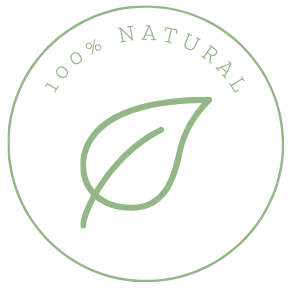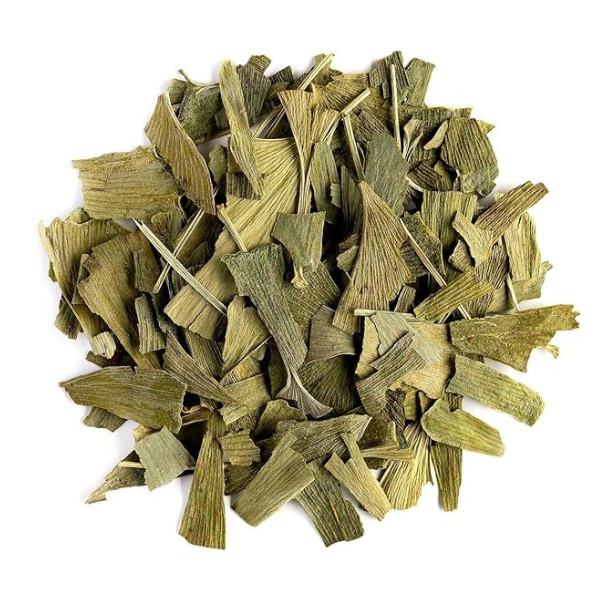Ginkgo Biloba
€6.95
Coming from one of the oldest tree species on earth, Ginkgo is one of the most popular herbs in use today. It can easily be infused in boiling water and made into a refreshing and fortifying tea
 .
. 

Ingredients:
Ginkgo Biloba Leaf
Benefits
Heart Health
The ginkgo leaf is particularly rich in flavonoids, amongst which reside the bitter ginkgolides. It is one of these compounds – ginkgolide B – that is a potent inhibitor of excess platelet activating factor (PAF). This reduced PAF has a similar blood thinning effect to aspirin, with excessive PAF being linked to cardiovascular disease and other immune and inflammatory diseases.
Endothelial cells form the lining of blood vessels, the flavonoid glycosides found in gingko exert antioxidant effects on these delicate cells, reducing injury due to free radical oxidisation. This in turn can reduce the risk of atherosclerosis – the leading cause of heart attacks and strokes.
The ability of gingko to strengthen blood vessels, combined with decreased blood clotting leads to better circulation and reduced inflammation – both of which are beneficial to a healthy heart.
Respiratory Health
Excessive PAF is also believed to be involved in the processes which can trigger asthma. Ginkgo biloba’s ability to block excessive PAF may help asthma sufferers, with at least one study showing it to be effective in reducing asthma symptoms.
Brain Health
The aforementioned improvement in circulation will also improve cognitive function – there must be a steady supply of oxygen rich blood to the brain for it to function properly.
In a recent overview of 28 trials with 2,608 patients, published in the journal “Current Topics in Medicinal Chemistry”, ginkgo biloba was found to have potential benefits in improving cognitive functions, activities of daily living, and other aspects of cognition in patients with mild cognitive impairment. According to GP and medical nutritionist Dr Sarah Brewer, “By improving blood flow to the brain, ginkgo extracts help to improve memory, concentration and thought processes. Ginkgo extracts may also help cognitive function in healthy people by enhancing short and long-term memory, although it can take at least six weeks before noticeable improvements occur”.
There is much controversy over whether this powerful herb can improve Alzheimer’s symptoms. Whilst a 2010 meta-analysis of nine studies of ginkgo for treating Alzheimer’s concluded it was more effective than a placebo, there are other studies claiming it has no effect.
PMS
Ginkgo Biloba has been shown to be of great benefit to PMS in several clinical trials. It not only improves the psychological symptoms of pre-menstrual syndrome, it also helps to alleviate some physical issues. In a double blind study of 165 women, symptom diaries kept by the participants and subsequent evaluation by a physician showed that ginkgo biloba was particularly effective in relieving the breast pain and tenderness experienced by some women with PMS.
Eye Health
In a recent study by Italian researcher, ginkgo biloba was found to help to maintain the blood flow to the optic nerve whilst protecting it from injury. The study revealed that participants with normal tension glaucoma (NTG), who were given ginkgo, showed significant improvement in their visual field. It was concluded that ginkgo biloba deserves further investigation for its potential in the treatment of glaucoma as well as other ischaemic ocular diseases.
Folklore and history
It was stated by Charles Darwin in 1959 that the Ginkgo Biloba tree is a "living fossil". It dates back to the Cretaceous Period - approximately 213 million to 66.4 million years ago - making it the world's oldest tree species, and most certainly around at the time of the dinosaurs!
The recorded medicinal uses of Ginkgo in China can be tracked back nearly 5000 years, chiefly as a treatment for asthma. It had a spiritual side too - according to Ming Dynasty medical scholar Li Shizhen, Taoist magicians used to carve their magic spells and symbols on old ginkgo wood to gain access to the spirit world.
This hardy tree not only survived the Ice Age, a large and ancient ginkgo tree actually survived the nuclear bomb blast at Hiroshima in 1945. Sitting only 1.1 km away from where the atomic bomb landed, the tree continued to bud after the blast with no major deformations. The tree is touchingly engraved with “No more Hiroshima” and peoples prayers for peace.
Traditional use
Reputed to be one of the oldest trees in the world, the mighty Ginkgo Biloba tree has been used traditionally in China for thousands of years to heal a broad variety of ailments.
With tremendous spiritual, medicinal and horticultural importance in China, ginkgo was primarily used as a treatment for asthma and other upper respiratory disorders.
Ginkgos are revered throughout Asia where this ancient tree has come to symbolise longevity and enlightenment. A large ginkgo growing in the Shanxi Province is believed to have been planted by the founder of Taoism, Lao Tzu himself.
Method:
We enjoy our HealthTea best when brewed in a teapot or French press. 1-2 tsps. for every cup of boiling water, stir, then steep for 10 minutes or more.
But you are you, so experiment, find your flavour and drink to your health!
HealthTea Therapeutic Herbal infusions, A natural source of Multi Vitamins & Minerals to support You and Your health. Organically and Ethically grown Super Herbs, lovingly blended for You into great tasting teas. Using only 100% biodegradable packaging that makes every cup of HealthTea Good for You and Good for the Earth.

NET WEIGHT 60G, 100% NATURAL, GLUTEN FREE, ORGANIC & ECO FRIENDLY
Additional information
| Weight | .05 kg |
|---|








Reviews
There are no reviews yet.